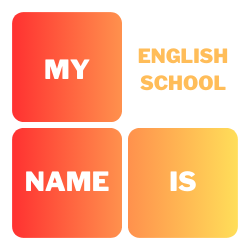БЛОГ
Demystifying Modal Verbs: A Key to Fluent English
Learning English is like embarking on a thrilling adventure, and modal verbs are your trusty companions on this journey.
Learning English is like embarking on a thrilling adventure, and modal verbs are your trusty companions on this journey. These special verbs wield the power to express possibility, necessity, ability, and more, adding depth and precision to your English conversations.In this article, we'll explore the theory behind modal verbs, their grammar structures, and provide examples of how to use them effectively.
1. Can
- Grammar Structure: Subject + "can" + base form of the verb
- Usage: "Can" is used to express ability, capability, or possibility.
- Example: "She can swim effortlessly."
2. Could
- Grammar Structure: Subject + "could" + base form of the verb
- Usage: "Could" can indicate past ability, make polite requests, or suggest a possibility.
- Example: "Could you please lend me your pen?"
3. Will
- Grammar Structure: Subject + "will" + base form of the verb
- Usage: "Will" is employed for future actions, offers, promises, and predictions.
- Example: "I will meet you at the cafe at 2 PM."
4. Would
- Grammar Structure: Subject + "would" + base form of the verb
- Usage: "Would" is versatile, used for polite requests, expressing preferences, and discussing hypothetical situations.
- Example: "Would you like some tea?"
5. Shall
- Grammar Structure: Subject + "shall" + base form of the verb (often used in questions)
- Usage: "Shall" is primarily used in questions to make suggestions, offers, or seek advice.
- Example: "Shall we go for a walk?"
6. Should
- Grammar Structure: Subject + "should" + base form of the verb
- Usage: "Should" is employed for giving advice, making recommendations, expressing obligations, or discussing expectations.
- Example: "You should visit the doctor if you're feeling unwell."
7. May
- Grammar Structure: Subject + "may" + base form of the verb
- Usage: "May" is used to seek permission, express possibility, or indicate uncertainty.
- Example: "May I borrow your umbrella?"
8. Might
- Grammar Structure: Subject + "might" + base form of the verb
- Usage: "Might" is similar to "may" and is often used to suggest a smaller degree of possibility or to make polite requests.
- Example: "I might attend the meeting later."
9. Must
- Grammar Structure: Subject + "must" + base form of the verb
- Usage: "Must" is employed to indicate strong obligations, necessity, or certainty.
- Example: "You must complete the assignment by tomorrow."
Let's practice this grammar - click here to understand what you remember about modal verbs!
Understanding modal verbs and their nuances will significantly enhance your ability to communicate effectively in English. Whether you're discussing possibilities, giving advice, or making requests, these versatile verbs will be your valuable allies on your language-learning journey.
As you strive for English language proficiency, consider taking your skills to the next level by enrolling in English courses at "My Name Is School." Our programs cater to English learners , providing a supportive and enriching environment to help you achieve your language goals. Don't miss this opportunity to elevate your English proficiency and enhance your communication abilities!
Understanding modal verbs and their nuances will significantly enhance your ability to communicate effectively in English. Whether you're discussing possibilities, giving advice, or making requests, these versatile verbs will be your valuable allies on your language-learning journey.
As you strive for English language proficiency, consider taking your skills to the next level by enrolling in English courses at "My Name Is School." Our programs cater to English learners , providing a supportive and enriching environment to help you achieve your language goals. Don't miss this opportunity to elevate your English proficiency and enhance your communication abilities!




